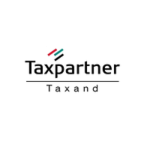‘Home office’, ‘remote work’, ‘smart working’ – throughout the course of 2020, these terms have become work-related buzzwords due to the COVID-19 pandemic, which itself has created many changes to daily life. In addition to liquidity difficulties of companies caused by the curtailed supply of goods and services, and the resultant change in the consumption behaviour of individuals, the labour market has also been turned upside down.
In addition to the large number of people on short-time work, companies have had to allow their employees to work from home. All of a sudden, one’s place of residence has also become one’s place of work.
This has led to numerous discussions at national and international level. A particularly contentious point is the associated tax law issues with the development of bilateral agreements. In the following article, we focus on the existing tax problems in connection with income from the employment of international workers, and provide a brief outlook on the risks that the new working models entail for companies that employ international workers.
Taxing international workers: A Swiss perspective
The term ‘international worker’ is far-reaching and comprises various case constellations.
Frontier workers, who typically return to their foreign place of residence every day, represent one category of such employees. In the case of international employees working for a company based in Switzerland, the question invariably arises as to the tax obligations of the Swiss employer in relation to its foreign employees.
A clear distinction must be made between domestic tax rules and international allocation rules of double tax agreements (DTAs). It should be noted that only domestic tax provisions can give rise to a tax liability. The international allocation rules regulate whether the taxing rights existing on the basis of the domestic tax law may be exercised, or if not, whether it will be restricted.
Taxation rules in Switzerland
Employees who are not resident or domiciled in Switzerland for tax purposes, are subject to limited tax liability in Switzerland if they carry out gainful employment in Switzerland. A withholding tax procedure applies, which means that the domestic employer must withhold the tax due when the employment salary is paid and remit it periodically to the competent tax authority. The taxation of foreign employees presupposes that the work that is decisive for the accrual of the entitlement to remuneration is physically carried out in Switzerland. This position has been confirmed several times by the Federal Supreme Court.
In this context, reference should be made to a landmark decision which was enacted on a German citizen who was employed by a Swiss company. Upon commencement of employment, the German employee physically carried out his work in Switzerland. At a later date, however, he moved to Qatar, where he continued to work for the Swiss company. The employer subsequently took the view that the obligation to pay withholding tax ceased upon commencement of the gainful employment in Qatar and applied for a refund of withholding taxes already paid. The Federal Supreme Court upheld the employer’s view and obliged the tax authorities to refund the unlawfully collected withholding tax (FSC decision 137 II 246 E. 4 and 5). This case law must therefore be kept in mind in the context of a working from home model triggered by the COVID-19 pandemic.
Taxation rules of DTAs
The starting point for income from employment in international relations is the ‘place-of-work principle’. This principle states that the country where the work is performed, may tax income from this gainful activity. The country where the employee is resident must either exempt this income from tax or offset the foreign tax against the domestic tax.
The specific frontier worker provisions, which are found in some Swiss DTAs, restrict taxation at the place of work. Switzerland concluded specific frontier worker agreements with Germany, France, Italy and the Principality of Liechtenstein, but not with Austria.
The taxation of frontier workers in relation to Germany is regulated in Article 15(a) DTA(CH-D). The DTA contains a definition of the term. As defined in Article 15(a), paragraph 2 DTA(CH-D), a frontier worker is someone who regularly returns to his place of residence. Up to 60 non-return days per calendar year are permitted so as not to forfeit the frontier worker status. Income of a frontier worker from gainful employment is basically taxed in Germany, whereby Switzerland may deduct 4.5% of the gross amount as withholding tax. Germany subsequently offsets the withholding taxes levied in Switzerland against the German income tax.
The DTA with the Principality of Liechtenstein goes one step further. Article 15 paragraph 4: DTA(CH-FL) provides that income earned by frontier workers may only be taxed in the country of residence. Switzerland may not levy a withholding tax on frontier workers resident in Liechtenstein. A protocol, which forms an integral part of the DTA, stipulates that frontier worker status lapses if the person does not return to his place of residence after the working day, on more than 45 working days in a calendar year. Pursuant to Article 19 paragraph 1 DTA(CH-FL), frontier workers employed in the public sector are taxed at the location from which the salary payment is made.
In contrast to the legal situation as it exists in relation to Germany and Liechtenstein, the existing frontier worker agreement with Italy adheres to the place-of-work principle. The taxing right is reserved exclusively to the place of work. However, as in the case of France, the agreement provides for compensatory payments by the cantons of Graubünden, Ticino and Valais in favour of the Italian border communities, in the amount of 38.5% of the gross amount of taxes paid by Italian frontier workers. On December 23 2020, Switzerland and Italy signed a protocol that provides for a future departure from the place-of-work principle.
The legal situation is somewhat different again in relation to France. It should be noted that there is a frontier worker agreement with the canton of Geneva and one with the cantons of Bern, Solothurn, Basel-Stadt, Basel-Land, Vaud, Valais, Neuchâtel and Jura. The frontier worker agreement with the canton of Geneva stipulates that the place-of-work principle pursuant to Article 17 DBA(CH-F) applies. In return, however, the canton of Geneva must compensate France with an annual amount of 3.5% of the gross wages paid to frontier workers resident in the departments of Ain and Haute-Savoie. In relation to the remaining cantons, the corresponding agreement contains a definition of a frontier worker and provides for a so-called waiting period of 45 days per calendar year. This means that the country of residence has the exclusive taxing right, whereby it must make a compensation payment of 4.5% of the total amount of the annual gross remuneration.
Temporary mutual agreements with neighbouring countries
The pandemic has led to considerable legal uncertainties with respect to the application of the formentioned domestic statutory provisions and DTAs. Working from home has resulted in a lack of physical presence at the usual place of work and the absence of daily border crossings, which ordinarily would have led to the shifting of the taxing right and tax revenue from the country where the work was usually performed to the country where the frontier worker established his home office. To avoid such disruptions due to the COVID-19 pandemic, various countries including Switzerland, have entered into temporary mutual agreements with their respective neighbouring countries.
Switzerland has concluded such temporary agreements with France, Italy, Germany and the Principality of Liechtenstein, all of which are still in force. They are based on a factual fiction: When exercising the right of taxation, it is presumed that employees in lockdown are pursuing their gainful activity in the usual manner, namely at their previous place of work.
In the case of frontier workers, this means that days spent working from home in the respective country of residence are treated in the same way as prior to the pandemic, when the work was typically carried out in the other country. The cantonal tax authorities in Switzerland take the position that these mutual agreements also have an impact on domestic tax law. According to this view, Swiss employers should comply with their withholding tax obligations and take into account the provisions of the individual mutual agreement, even though the employees concerned no longer carry out their gainful employment in Switzerland on a regular basis. This practice is in contradiction to the principles outlined above that the Federal Supreme Court had established in the past.
Germany
In relation to Germany, this practice means that Switzerland may continue to levy a withholding tax of 4.5% of the gross salary on frontier workers, which Germany will offset accordingly. The period during when a frontier worker is affected by COVID-19 measures is not taken into account when checking the number of days that may not be exceeded for the denial of frontier worker status. This period must be confirmed in writing by the employer.
If the frontier worker provision does not apply, it should be noted that Switzerland can also tax and Germany grants an exemption. Due to the lack of physical presence, which is a prerequisite for tax liability in Switzerland, the employer is obliged to issue the employee with a confirmation of the number of working days during which the employee pursued gainful employment in the country of residence. This confirmation is also deemed to be an evidence that the salary is actually taxed in the country that is ordinarily considered the country where the work was usually physically performed. German frontier workers must submit this confirmation to the competent German tax office. Only then will Germany grant the exemption. This is to prevent double non-taxation.
France
In relation to frontier workers, the agreement with France ensures that France pays the compensation payment of 4.5%, despite the absence of physical gainful employment in Switzerland, insofar as the agreement with Geneva does not apply.
In the case of the agreement with Geneva, the factual fiction applies, which should ensure that Geneva can continue to tax. In return, Geneva must compensate with an annual amount of 3.5%.
In addition, the agreement grants the employee a right of choice. If an employee wishes to pay tax on the income attributable to the extraordinary home office days in his country of residence, the tax authorities in the country of residence must be notified.
Italy
With regard to employees resident in Italy, Switzerland retains its taxing right even during the lockdown period, if the gainful activity was usually carried out in Switzerland.
For those employees who are not frontier workers, Italy offsets the Swiss tax with the Italian tax, whilst in the case of frontier workers, cantons affected by the frontier worker agreement still have to make a compensatory payment of 38.5% to Italy.
Liechtenstein
As for a Liechtenstein frontier worker, the employer must issue a confirmation of the period during which the worker carried out his employment activity in the country of residence as a result of the pandemic. This is to ensure that the frontier worker status will not be lost due to exceeding 45 days.
The agreement aims at preventing Switzerland from asserting a taxing right for gainful employment physically carried out in Switzerland, due to a cessation of the frontier worker status.
If the frontier worker provision does not apply, it should be noted that the factual fiction applies and the worker is deemed to be working at the normal place of work, provided that he can prove that his wage is taxed at that place.
Comparisons with other countries
In Switzerland, there are also international workers from other countries with which no mutual agreements have been concluded, which is why special rules as a consequence of the extraordinary pandemic situation are not in place. One example is the relationship with Austria.
On April 28 2020 and May 18 2020 respectively, the cantonal tax office of Zurich and the tax authority of the canton of Basel-Stadt ruled that for this category of employees resident abroad, days spent working at home due to the pandemic are subject to Swiss withholding tax. The cantonal tax office of Zurich has indicated the possibility of a restatement of the assessment, should international double taxation occur. Their view is that the special COVID-19 rules, such as those with countries with whom mutual agreement agreements are already established, reflect general principles which are applicable to other countries as well.
As previously explained, this view contravenes both the DTAs and the domestic law, which has left employers in a quandary with regards to the 2020 tax year. Employers would actually have complied with the law if the tax at source was no longer deducted for the days worked at home.
However, if they had not deducted the withholding tax, which would have been the correct legal course of action, they would have acted contrary to the view of the tax office and might have run into liability, as the risk of liability lies with the employer. Due to this dilemma, many Swiss employers have decided to deduct withholding tax. In some cases, withholding tax has even been deducted in connection with new employees entering the Swiss labour market. The following example illustrates this issue:
Employee X started working for a Swiss employer in March 2020 and has been working from home since then. The Swiss employer deducts withholding tax. However, based on case law, a tax liability can only be established upon commencement of physical employment activity in Switzerland, therefore the levying of withholding tax proves to be unlawful in this constellation as well.
Fortunately meanwhile, both the canton of Zurich and Basel-City have abandoned this unlawful practice. The rules according to the applicable DTAs now apply, thus days worked at home and in the country of residence due to COVID-19, are in principle not taxable in Switzerland.
The question arises as to whether and how incorrectly paid withholding taxes in the tax year 2020 can be reclaimed. According to domestic law, up until the end of March 2021, foreign employees and the Swiss company can request a formal order from the competent cantonal administration, on the determination of the tax liability for taxes paid in 2020. If the tax office insists on a tax liability, the taxpayer or the company must assert the refund through the ordinary appeal procedure. If the deadline of March 2021 is missed, the refund can only be claimed via the so-called revision procedure, which is an extraordinary legal remedy.
The canton of Basel-Stadt explicitly provides that employees for whom the country of residence claims the taxing right for days worked at home can request a refund of the corresponding withholding tax paid in Switzerland from the competent cantonal tax authority, if requested in writing within 90 days of notification of the taxation (opening of the assessment decision) by the foreign tax authority. It can be assumed that in practice other cantons will impose the same requirements with regard to the restatement procedure.
Outlook
On December 23 2020, Switzerland and Italy signed a new agreement on frontier workers, which is to replace the current agreement of 1974 and will apply reciprocally. The most important changes are that the two countries have agreed on a definition of frontier workers, which is welcomed for reasons of legal certainty.
Additionally, a distinction is made between new and existing frontier workers. In the case of new frontier workers, the country of employment may levy 80% of the withholding tax. The frontier worker is then subject to ordinary tax in their country of residence, which then has to eliminate any double taxation. In order to ensure taxation in the country of residence, the income of a new frontier worker is subject to an electronic exchange of information. In the case of frontier workers, the previous rule will continue to apply until the end of the tax year 2033. Thereafter, Switzerland no longer has to make compensation payments and can retain the entire tax revenue.
The entry into force of the agreement is still pending. The protocol of the new agreement contains a provision in paragraph 3, according to which regular consultations are scheduled to take place between the contracting countries regarding the possible further development of working from home policies. Due to the high degree of cross-border networking of Swiss global companies and the attractivity they have for international employees, Switzerland has a vested interest in upholding the provisions of the temporary mutual agreements in the future. Should Switzerland be successful in its endeavours, it will have to adapt its domestic tax law accordingly.
The cross-border commuter agreements are a prime example of how a home office working arrangement has become the ‘new normal’. Without any permanent adjustment of the existing legal framework, this will inevitably lead to a redistribution of the tax revenue.
In this regard, employers must exercise particular caution in order not to fall into stumbling blocks. It is therefore important to carefully consider to what extent a working from home strategy is worthwhile for a company. Early stage planning is essential, whereby possible tax risks must not be disregarded.
Click here to read the 2021 Switzerland Special Focus guide
René Matteotti |
|
|---|---|

|
Of counsel Tax Partner AG T: +41 44 215 77 61 E: rene.matteotti@taxpartner.ch René Matteotti is a tax lawyer at Tax Partner AG. He is also a tenured professor of law at the University of Zurich. René’s areas of expertise include corporate and international tax law, transfer pricing and governmental advisory work. He is an established tax attorney representing domestic and international clients before tax authorities and the courts, primarily supporting multinationals in the resolution of disputes arising from tax audits, tax ruling requests and mutual agreement procedures. He has litigated cases before tribunals at every judicial level from first instance to the Supreme Court of the Swiss Federation. He has also acted as an expert in international tax cases before foreign courts. René regularly provides expert legal opinions on complex tax law issues, many of which have had significant impact on pivotal tax legislations. He acts as an expert to the technical working group formed by the federal government on the subject of digitalisation of the economy. |
Peter Vogt |
|
|---|---|

|
Partner Tax Partner AG T: +41 44 215 77 32 Peter Vogt is a partner at Tax Partner AG. He previously worked for the tax authorities and a professional services firm, before joining Tax Partner AG in 2005, where he became a partner in 2009. Peter specialises in tax advice for expatriates and their employers as well as national and international private clients, support of corporate clients in areas such as employee participation plans, and wage tax. He studied business administration at the Zurich University of Applied Sciences and is a certified Swiss tax expert. |
Natalja Ezzaini |
|
|---|---|

|
Tax advisor Tax Partner AG T: +41 44 215 77 68 E: natalja.ezzaini@taxpartner.ch Natalja Ezzaini is a tax advisor with Tax Partner AG, having joined the team in 2020. Natalja focuses on tax advice for national and international corporations and entrepreneurs, as well as private clients. She speaks at tax seminars and is an author on Swiss tax law matters. Natalja has a master’s degree in law from the University of Zurich, where she had a focus on tax law. For two years, she worked as a research assistant in Swiss, European and international tax law with René Matteotti. |
Tax Partner is a leading tax firm in Switzerland. With a team of approximately 50 professionals, the firm advises multinational and national corporate clients as well as private clients in all tax areas. In 2005, Tax Partner co-founded Taxand – the first global network, with more than 550 tax partners and over 2,500 tax advisers from independent member firms in 50 countries. |











